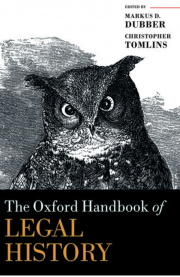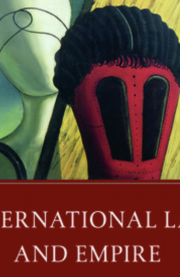
Professor Emeritus of Law & Legal History
CV / Biography
LL.B. (Hons), first class, from Victoria University of Wellington (NZ); LL.M. (“The Management of Native Lands in Canada and New Zealand: A Comparison”) from the University of Saskatchewan, Saskatoon, Canada; Ph.D. (Cantab.) 1988 (awarded Yorke Prize 1989). Fellow of Sidney Sussex College 1984 - . Extensive publications in the field of common-law aboriginal rights; constitutional (imperial and colonial) history and historiography. Citation by courts (most recently and prominently, New Zealand's foreshore and seabed controversy (2003 -), also Takamore v Clark [2011] NZCA 587; Ross River Dena Council v A.-G (Canada) 2012 YKSC 4) and as leading expert witness for the defendants in the 'Urewera Four Trial' (2012) (billed as New Zealand's most expensive criminal trial).
He is working on a new multi-volume project Albion's Sceptre: Office and Prerogative in the Constitutional Culture of the Early Modern British Empire. During the early modern period, the British often applauded theirs as an Empire of Law. Yet for all the self-congratutory there was little our understanding of how this Empire was founded upon and articulated a sense of its own lawfulness. The book will look at the imperial prerogative and its deployment in a variety of historical (and geographical) settings and the 'presuppositions' of office by which British authorities constituted lawfulness at home and, more especially, abroad. The book will look at the intensification of office and the marshalling of emergent notions of subjecthood during the late eighteenth and early nineteenth century with the rise of the fiscal-military British state. Office entailed more than imperial counter-practice to rights-based legalism iof a French and American sort but also provided a frame for the myriad streams of discursive practice of this period and their contesting, ranging from the Parliamentary impeachments of Hastings, Dundas, vilificaton of the Norman Yoke, through those of politeness and gentility. The dynamic in the history of (British and imperial) public law in this period was not that of law a higher-order, external abstraction nor driven by any modish constitutional doctrine of the separation of powers. Rather, public law thought (still mostly inside the era of personal kingship) treated law as an embodiment rather than as an abstraction. Parliamentary intervention was largely to shore up the imperial prerogative and was one sphere where (in the period between the Bill of Rights 1689 and the accession of Victoria 1837) the Whig imagery of a gradual whittling down was largely inapplicable.
Extensive presentations and public lectures in the UK and abroad (Canada and New Zealand especially), including practitioners' workshops.
Selected publications
Books
Aboriginal Societies and the Common Law (Oxford University Press, 2004)





 Facebook
Facebook  X/Twitter
X/Twitter  Instagram
Instagram  YouTube
YouTube  Flickr
Flickr  LinkedIn
LinkedIn